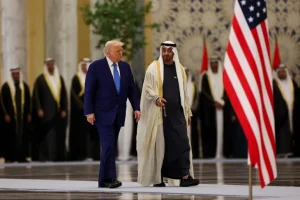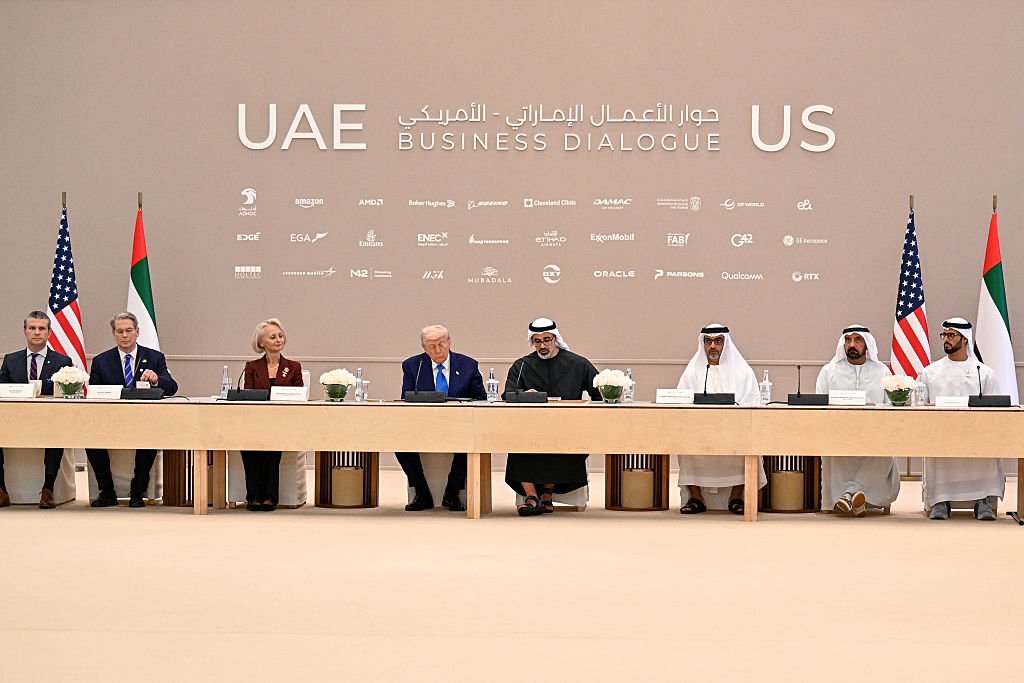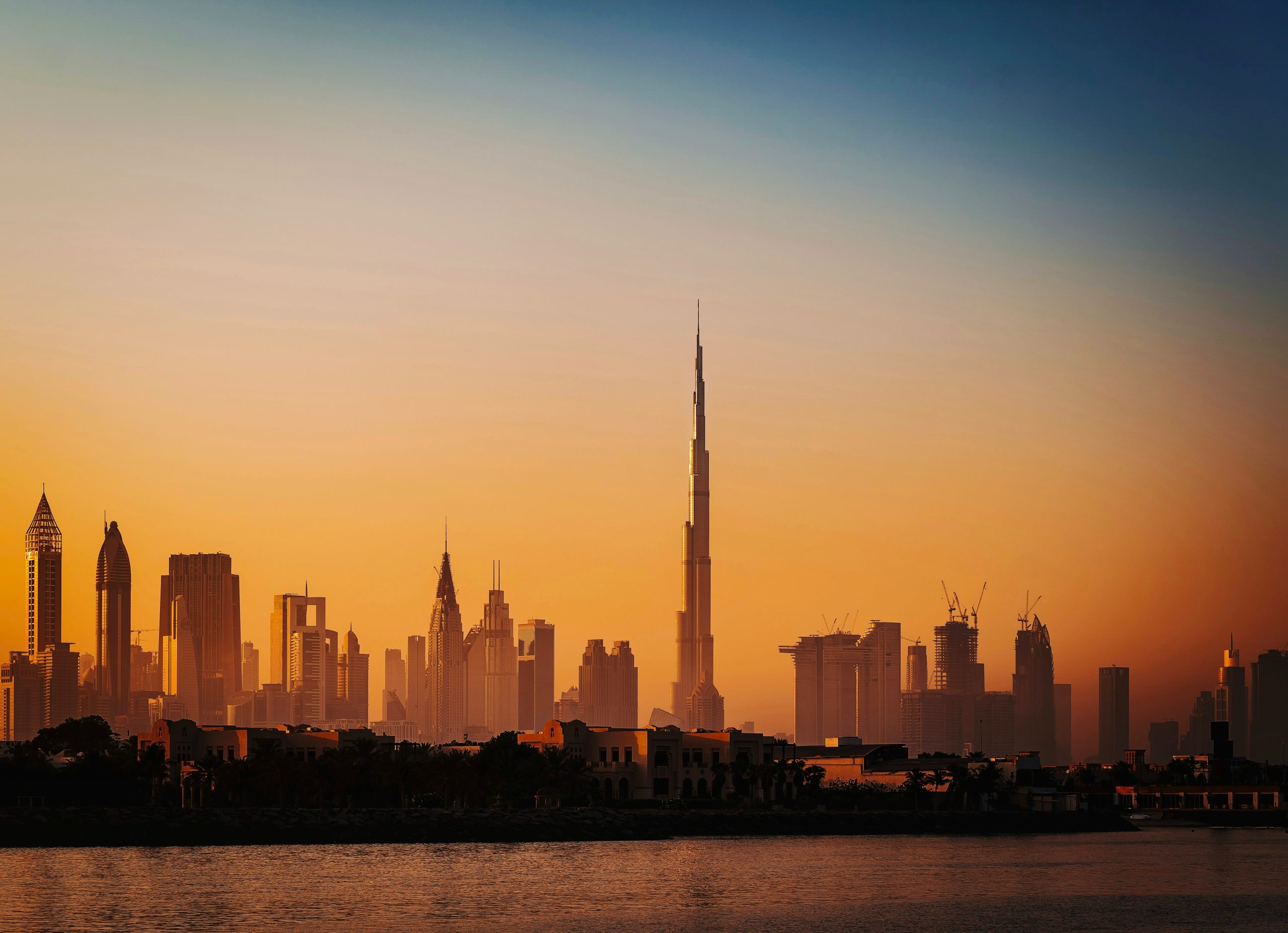Agreement that would give Gulf country better access to advanced AI chips raises concerns over Chinese influence
The United Arab Emirates and the United States have signed an agreement for the Gulf country to build the largest artificial intelligence campus outside the US, one of several deals around AI made during Donald Trump’s visit to the Middle East.
But the agreement has also raised concerns, since it would have faced restrictions under the previous administration over Washington’s fears that China could access the technology.
he agreement to build the campus would give the UAE expanded access to advanced AI chips. The US and the UAE did not say which AI chips could be included in the data centers, but sources told Reuters the UAE could be allowed to import 500,000 of Nvidia’s most advanced AI chips each year starting in 2025.
Nvidia’s chief executive, Jensen Huang, was seen in televised footage conversing with Trump and the UAE president, Sheikh Mohamed bin Zayed Al Nahyan, at a palace in Abu Dhabi on Thursday.
Trump hails growing ties with UAE on last leg of Gulf tour
US president says UAE will invest $1.4 trillion in the US’s artificial intelligence sector over the next decade.

President Donald Trump has hailed deepening ties between the United States and the United Arab Emirates and said that the latter will invest $1.4 trillion in the former’s artificial intelligence sector over the next decade.
“I have absolutely no doubt that the relationship will only get bigger and better,” Trump said on Thursday at a meeting with UAE President Sheikh Mohamed bin Zayed Al Nahyan, on the final leg of his three-country tour of the Gulf region that saw him strike a series of lucrative tech, business and military deals.
Sheikh Mohammed said the UAE remained “committed to working with the United States to advance peace and stability in our region and globally”.
The deal with UAE is expected to enable the Gulf country to build data centres vital to developing artificial intelligence models. The countries did not say which AI chips could be included in UAE data centres. Nvidia CEO Jensen Huang had earlier been seen in conversation with Sheikh Mohamed and Trump.
The AI agreement “includes the UAE committing to invest in, build, or finance U.S. data centres that are at least as large and as powerful as those in the UAE,” the White House said.
Reporting from Doha in Qatar, Al Jazeera’s Hashem Ahelbarra said such a deal had been “a national security concern” for Washington in the past. “But then they decided to change their mind under Trump, particularly when the UAE said that it was willing to invest $1.4 trillion,” he said.
Ahelbarra said the deal was a “significant step” for the UAE, positioning it as “the most important player in artificial intelligence, followed by Saudi Arabia”.

A multi-billion dollar deal to build one of the world’s largest data centre hubs in the United Arab Emirates with US technology is far from being concluded due to persistent concerns around security, sources familiar with the matter told Reuters.
The US and the wealthy Gulf state unveiled the massive artificial intelligence campus project set to contain a cluster of powerful data centres during President Donald Trump’s two-day visit to Abu Dhabi last month.
The planned 10-square-mile (26-sq-km) site is being funded by G42, an Emirati state-linked tech firm that is driving the development of its artificial intelligence industry.
Technology giants Nvidia, OpenAI, Cisco, and Oracle, along with Japan’s SoftBank, are working with G42 to build the first phase, known as Stargate UAE, set to go online in 2026.
The project, which plans to use advanced Nvidia AI chips, has been promoted by Trump officials as a win in steering Gulf states toward US technology over Chinese alternatives.
But according to five sources briefed on the project, US officials have yet to determine the security conditions to export the advanced chips or how the agreement with the Gulf state will be enforced, leaving the deal far from resolved.
During Trump’s visit, Abu Dhabi pledged to align its national security regulations with Washington, including safeguards to prevent the diversion of US-origin technology.
But US officials remain cautious about the UAE’s close relationship with China, four of the sources said, noting that the concerns are consistent with those raised during both the Biden administration and Trump’s first term, primarily around the Gulf state’s reliability as a strategic partner.
The sources did not specify whether new evidence had emerged, but said existing concerns remain unresolved. During Trump’s first term, the UAE and other Gulf states moved forward with deploying Huawei 5G technology despite US objections.
Others in the administration also doubt whether the UAE, despite its intentions, can prevent US technology from reaching Washington’s adversaries, four of the sources said.









